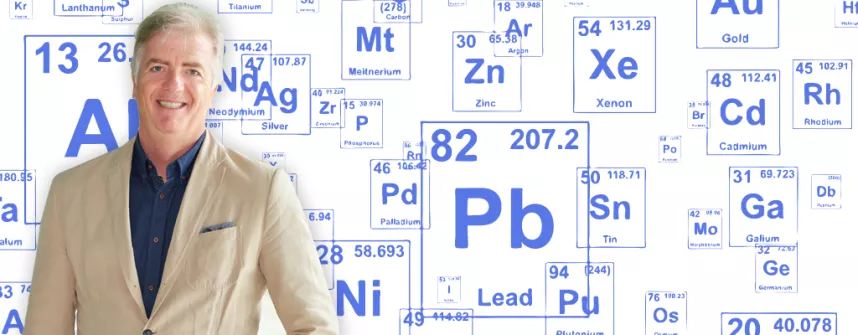Scientists at Jacobs University Bremen research a new class of materials containing precious metals
September 21, 2020
Precious metals such as platinum, palladium, gold, rhodium or iridium can be found in a variety of everyday products, for example in catalytic converters of cars, in mobile phones and laptops as well as in solar cells. They are particularly interesting for chemists because of their low reactivity with other elements. A team of researchers, led by Professor Ulrich Kortz at Jacobs University Bremen, now wants to develop a new class of materials containing precious metals and investigate their possible applications. "These materials will be very exciting not only for catalysis, but also for quantum computers and data storage," says Prof. Kortz. The project is funded by the German Research Foundation with around 200,000 euros.
The chemist is a pioneer in the research area of polyoxopalladates (POP), a class of compounds his research team discovered in 2008, which has since been expanded to include more than 80 structurally and functionally interesting compounds through careful research work. Very recently, Kortz and his team discovered a new family of three-dimensional (3D) materials, namely polyoxopalladate-based metal-organic frameworks (POP-MOFs), that exhibit immense potential as heterogeneous catalysts. Such catalysts could play an important role in a number of industrial applications such as the synthesis of agrochemicals, pharmaceuticals or the production of high-octane petrol.
With his latest project, the scientist is once again trying to break new ground. It involves the design, synthesis and characterization of a number of compounds with magnetic metal ions in their core. Such magnetic materials with their complex 3D nanostructures are predicted to have great potential for a variety of applications, such as data storage and quantum computing. They also offer new possibilities for heterogeneous catalysis, i.e. for a chemical reaction in which the catalyst and the reacting substances are present in different states of aggregation.
The title of the research project, which is scheduled to run for three years, is "Synthesis of organometallic frameworks based on precious metal-oxo clusters and their use in heterogeneous catalysis and magnetism". Dr. Saurav Bhattacharya in Professor Kortz's research group will conduct the proposed research, and important cooperations exist with Professor Eugenio Coronado from the University of Valencia (Spain), a leading specialist in molecular magnetism and spintronics, and the expert theoretician Professor Josep M. Poblet from the University of Tarragona (Spain).
The proposal states that this is a high risk – high reward project. "One never knows whether the chemical conversions will work as intended and if the obtained materials will exhibit the expected magnetic/catalytic properties. There are many cogs in the wheel," explains Kortz. "But we are hopeful to indeed produce the proposed materials. This project is driven by a strong pioneering spirit, because only chemists can create new compounds that did not exist before.”
Questions are answered by:
Ulrich Kortz | Professor of Chemistry
u.kortz [at] jacobs-university.de | Tel.: +49 421 200-3235
